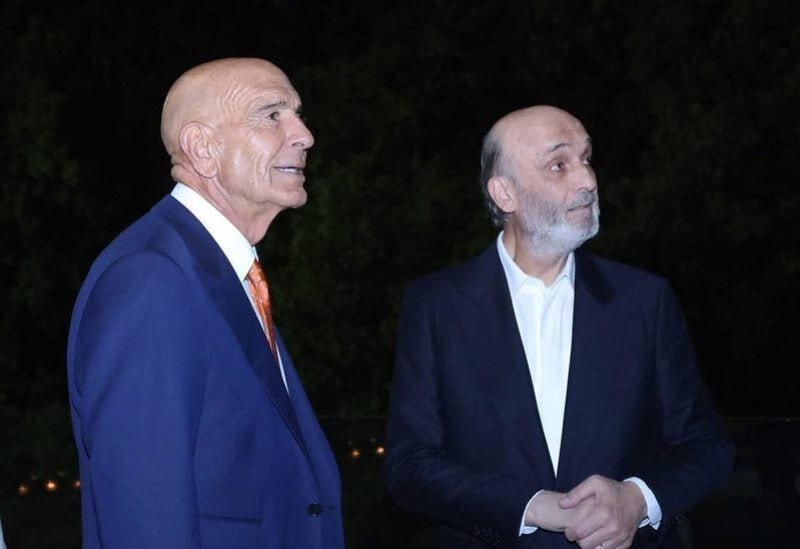Electoral crisis and shadow of Geagea’s presidential ambition
A dispute over expatriate voting exposes Lebanon’s entrenched political maneuvering and paralysis

BEIRUT — Lebanese Prime Minister Nawaf Salam’s cabinet has postponed a decision on proposed electoral amendments until Thursday, awaiting the report of a ministerial committee tasked with reviewing the changes.
What is unfolding in Lebanon goes far beyond debates over electoral law or expatriate voting.
While this delay appears procedural, it masks a deeper political struggle: Samir Geagea, leader of the Lebanese Forces (LF), is leveraging the timing and diaspora votes to strengthen his position amid declining domestic and regional standing.
The Thursday committee report will play a pivotal role in determining whether the 16th electoral district for expatriates is abolished or modified. Its conclusions could either consolidate Geagea’s influence among diaspora voters or diminish his party’s political leverage, making the committee a key chess piece in the broader struggle over Lebanon’s parliamentary and presidential future.
The 16th district: An electoral innovation under debate
Lebanon’s 2017 electoral law divides the country into 15 districts, electing 122 of 128 parliamentary seats proportionally. The 16th District is exceptional, created for Lebanese expatriates. It comprises six seats—Maronite, Orthodox, Catholic, Sunni, Shiite, and Druze—each representing a different continent: Africa, Europe, Asia, North America, South America, and Oceania.
The district aimed to strengthen ties between Lebanon and its diaspora but was postponed twice due to political and logistical disagreements.
Opponents argue it gives expatriates disproportionate influence; supporters see it as a symbolic step toward transnational citizenship.
The committee report due Thursday will decide whether to abolish the district or unify expatriate voting with domestic ballots.
Expatriates, frozen funds, and political paradoxes
The debate also touches a major financial and ethical issue: the non-return of depositors’ funds, most of whom are Lebanese abroad—the same expatriates now demanding voting rights. Many feel their votes are treated as electoral tools while their looted savings remain trapped in banks protected by the very authorities claiming to represent them.
It is a glaring paradox: on one hand, the expatriate vote is leveraged to outmaneuver Speaker Nabih Berri and limit Hezbollah’s influence; on the other, no solution is offered to help recover their savings.
This exposes a contradiction in Geagea’s rhetoric, who presents himself as a defender of the diaspora while remaining silent about those responsible for the financial crisis, some of whom are his political and banking allies.
Another critical dimension is inequality among expatriates themselves. Many voters abroad, especially in Persian Gulf Arab countries, fear casting ballots for fear of persecution or job loss if found supporting the resistance.
Berri is aware of this, explaining his opposition to expanding expatriate voting in such a biased environment. Geagea, in contrast, benefits from this imbalance, as diaspora communities in Western Europe and the Persian Gulf tend to oppose the resistance.
The game of time and the postponed presidency
The Thursday committee report is part of a longer strategic calculation. Delays in electoral decisions give Geagea time to rehabilitate his image and extend influence ahead of the next presidential election. While he frames his opposition as defending democratic rights, the underlying goal is tactical: freezing proceedings until a favorable regional settlement emerges.
The irony is stark. The LF, which supported the 2022 law, now demands its amendment because political power has shifted. Overseas votes, historically advantageous to the LF, are now at risk. The committee process allows Geagea to control timing and outcomes.
Meanwhile, the Lebanese elite prioritize political maneuvering over urgent public needs. Ministers debate expatriate voting while citizens face economic collapse, currency instability, and electricity shortages. The committee report is not merely technical—it will set the tone for the upcoming electoral cycle and the balance of power among local and regional stakeholders.
Ultimately, the 16th District controversy reflects Lebanon’s larger crisis: a fragile democracy manipulated by elite ambitions, diaspora influence, and external pressures, where procedural committees serve as battlegrounds for political survival rather than instruments of governance.
Leave a Comment